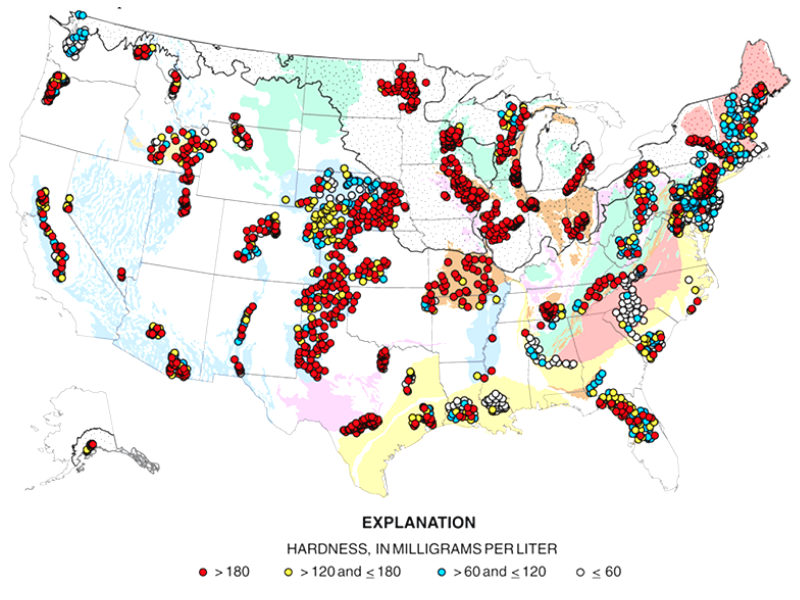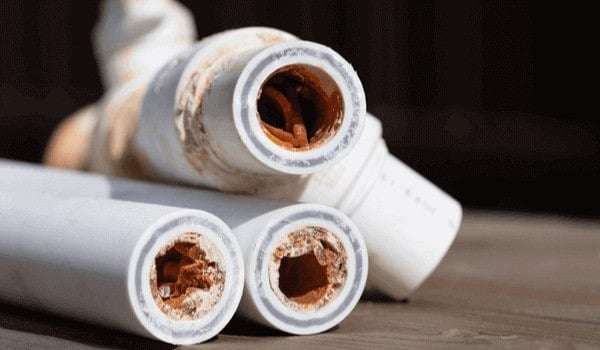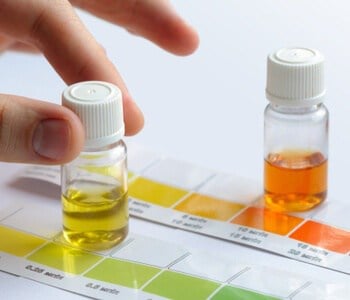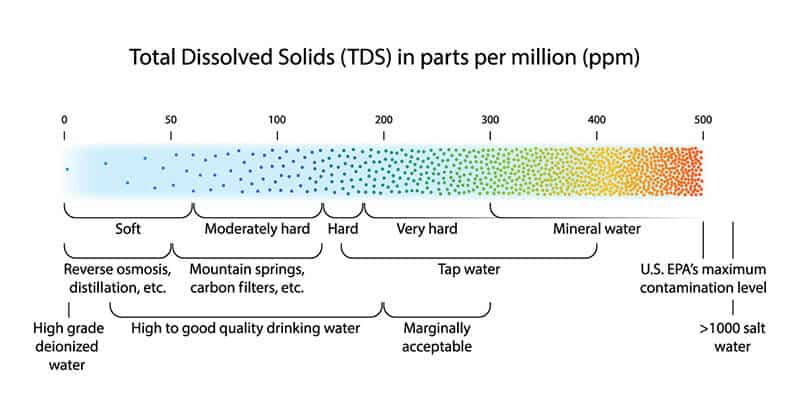Hard water is more common than most people think. Over 80% of Americans live with it daily — and many don’t realize just how much it impacts things around the house. From cloudy glasses to dry skin and dull laundry, hard water causes everyday frustrations — but we often chalk them up to other issues.
This guide sets the record straight. You’ll learn what hard water really is, how it’s measured, and how to decide if a softener makes sense for your home.
💡 Key Takeaways:
- Hard water that contains high levels of calcium and magnesium.
- It’s measured in GPG (grains per gallon) or mg/L (milligrams per liter).
- Soft water: 0–3 GPG / 0–60 mg/L
- Moderately hard: 3–7 GPG / 61–120 mg/L
- Hard water: 7–10 GPG / 121–180 mg/L
- Over 10 GPG is very hard — consider a water softener at this level.
What Is Hard Water?
Water is hard when it contains high levels of naturally occurring minerals, largely calcium and magnesium. As rainwater and snow-melt seep into the soil, they pick up minerals from the surrounding rock.
Groundwater is more likely to contain high level of hard minerals than surface water, but there are exceptions. The higher the mineral level, the harder your water is.
How is Hardness Measured?

Water hardness is measured in milligrams per liter (mg/L), parts per million (ppm) or grains per gallon (GPG). The most commonly used measurement is grains per gallon (GPG), but conversion is easy. One part per million is equal to 1 mg/L, and one grain is equal to 17.1 parts per million.
According to the US Geological Survey (USGS) water hardness scale:
- Soft water = 0 – 60 mg/L or 0 – 3.5 GPG
- Moderately hard water = 61 to 120 mg/L or 3.5 – 7 GPG
- Hard water = 121 to 180 mg/L or 7 – 10.5 GPG
- Very hard water = levels above 181 mg/L or more than 10.5 GPG
Other hardness scales designate levels above 15 GPG as extremely hard water.
What’s Is the Ideal Water Hardness Level?
There’s no ideal hardness level — only one at which you’re satisfied with your water quality. But in general, the consequences of hard water become noticeable at 7 GPG — more than that, and it’s time to consider action.
How Does Water Hardness Affect My Family?

The good news about hard water is that it’s not a health risk. In fact, research suggests it has modest health benefits.
Hardness minerals consist primarily of calcium carbonate and magnesium, minerals the human body needs to stay healthy. Calcium plays an important role in muscle and heart health, while magnesium is essential for nerve function and blood pressure control. But while they’re good for your body, what minerals do to your home is another story.
The term “hardness” was coined to describe water that’s hard to wash in. Soap reacts to dissolved minerals like oil to water, so detergents don’t lather effectively.
Common signs of hard water that you can see or feel include:
- Dingy laundry
- Dry hair and itchy skin
- Spotty dishes
- Decreased water pressure
- Crusty faucets and soap scum residue left on bathtubs and glass shower doors
But ultimately, it’s what you can’t see that can hurt you.
Dissolved calcium and magnesium create limescale, a mineral buildup in water pipes and appliances, such as dishwashers and washing machines. Corrosive, solid deposits clog pipes and damage water heaters, increasing energy use by up to 30 percent.
Cleaning soap scum and managing dry skin are just nuisance issues. But between using more soap, paying higher utility bills and replacing appliances prematurely, hard water can take a toll on your budget. Did you know that it can cost up to $1500 to replace an electric hot water heater?
Should I Test for Hard Water?

The USGS maps water hardness nationwide, but levels are just estimates and can vary widely by neighborhood. Don’t depend on them to guide your water treatment decisions.
If you drink from a municipal water supply, call your local treatment authorities. Water systems keep a close eye on hardness levels because they affect water chemistry management.
If you have a well, measuring water hardness has never been easier. You can purchase water hardness test strips or opt for laboratory testing. We like Simple Lab’s water hardness test kit because it’s affordable, easy to use, and accurate. The results are reported in GPG and include objective recommendations for water softeners — a plus if you’ve never had your water tested before.
TDS Meters

Can you use a TDS (total dissolved solids) meter to test water hardness? We don’t recommend it. TDS meters measure the electrical conductivity of water, so they pick up any substance with a charge, including chemicals and other dissolved minerals. The results, therefore, will reflect more than hardness and will be less accurate than necessary to make water treatment decisions.
Should you choose to install a water softener, we recommend using a TDS meter or hard water test strip to check its performance occasionally. But you need to know exactly how many grains of hardness are in your water to purchase the right size softening system. When you need actionable results, a lab testing kit is the most accurate way to measure water hardness.
Should I Soften Hard Water?
If your water hardness is below 7 GPG or 60 milligrams per liter, you may not benefit from a water softener. Some experts, however, suggest that concentrations as low as 3 GPG can create limescale, even though it’s not considered hard water.
Whether you choose to soften moderately hard water is a matter of preference. But very hard water can be costly, so it’s worth reducing high concentrations of minerals to acceptable levels.
💡 Are Water Softeners Worth It?

Before you commit, it’s worth weighing the benefits and potential drawbacks. From better-tasting water to added maintenance, here’s how the pros and cons of softening stack up.
| 👍 Pros | 👎 Cons |
|---|---|
| Improves Water Taste Removes minerals that cause bitter or metallic flavors, making water taste better. |
Higher Operating Costs You’ll spend $250–$400 per year on salt, plus extra water used during regeneration. |
| Protects Appliances Prevents limescale buildup in water heaters, dishwashers, and pipes. |
Adds Sodium to Water Softened water contains trace sodium, which may be a concern for sensitive individuals. |
| Saves Time & Effort Reduces soap scum and mineral stains, making cleaning easier and faster. |
Environmental Impact Brine discharge can harm local water systems and delicate ecosystems. |
| Lowers Utility Bills Soft water helps appliances run more efficiently, reducing energy costs over time. |
Not Always Legal Salt-based softeners are restricted or banned in some drought-prone regions. |
🚰 Not sold on salt-based softeners?
If you’re looking for a more sustainable, low-maintenance alternative, a salt-free water conditioner might be the better fit. It won’t remove minerals — but it can still help minimize limescale without adding sodium or wasting water.
Final Thoughts
Whether you choose to soften your water or enjoy it as-is, we recommend learning more about your water chemistry, including its hardness level. As times change, so may your softening needs.
 157 people found this helpful. Was this guide helpful to you?
157 people found this helpful. Was this guide helpful to you? 

